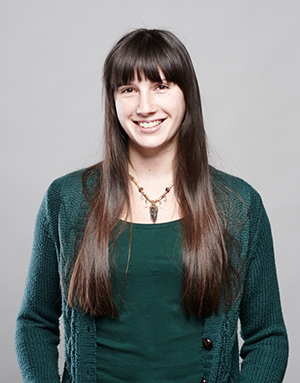Key data
Job description: Dietician
Company: Swiss Paraplegic Centre SPZ Nottwil / Zürich Children’s Hospital
I work in: Zürich and Nottwill, Switzerland
I’ve worked here since: April and June 2015
My contact
LinkedIn
What I do:
- Looking after patients beginning rehabilitation
- Clinical nutrition therapy
- Long-term support for paraplegic patients
Why I love my job:
- Long-term patient support
- Variety during the working day
- Individual support for patients
Important skills in my job
- Empathy
- Language skills
- Clinical nutrition
My biggest accomplishment so far:
In 2012, we had a patient who was an asylum-seeker who had been paralysed by shrapnel in Syria. He could only speak and understand Arabic. It was a real challenge to take his food orders as well as his dietary history. An Arabic-German hospital dictionary and other creative measures such as pictures helped me to ensure the patient was reasonably satisfied.
How I found my current job:
I wrote an official application to the SPZ and was invited for an interview. The same day, I also sent the required internship certificates to the SPZ nutritionists by email. I received telephone confirmation the very next day which was great but very surprising. I also had a good feeling during the interview.
What I learned for this job during my studies:
While having professional background knowledge is important, you really learn a great deal from undertaking practical work. In Switzerland, the training was also recently transferred to universities of applied sciences. Many employers are therefore very pleased with graduates skilled in evidence-based work methods such as literature searches. I would like to emphasise the good training provided in clinical nutrition in particular.
Job prospects in my field:
Searching for a job after completing your studies is difficult if you want to work in a specific specialist field. But if you are not so fixed on a specific field or location, things are fairly good.
I am
- creative
- motivated to learn
- open-minded
About my job:
I have been working for the Swiss Paraplegic Centre SPZ Nottwil since April 2015. The SPZ defines itself as an acute care and rehabilitation clinic for paraplegic patients and patients with symptoms of paralysis caused by various conditions such as MS, ALS or tumours.
I also started work at the children’s hospital in Zürich in June 2015. Here I began work in an entirely different field: congenital metabolic disorders and allergies in children and young people. I spend 7 to 9 hours a week on the train on average travelling between my post in in Zürich, my second post in Nottwil and my home in Lucerne.
After completing my studies, there was nothing keeping me in my home village in Upper Austria. I wanted change. After finishing my exchange semester in Switzerland, I acquired some insight into how the clinical sector operates there.
In autumn 2013, there were not so many (appealing) vacancies on offer in Austria. And so the decision was easy to make.
My first post was in Lucerne, working as a ‘field dietician’ for the Switzerland National Nutrition Survey. It sounds more exciting than it is! In the end, it was lots of office work and stringent study protocols and my role was primarily to carry out detailed dietary histories and body measurements. Nevertheless, it was a positive experience for me to get to know the nutritional habits of central Switzerland and gain a detailed knowledge of the food market.
My contract expired after 1.5 years and it was then that I acquired my post at the SPZ. Initially I found it very difficult and was somewhat anxious about working in a hospital again. My past internship at a hospital had been at the start of 2013 – over two years earlier.
I would recommend anyone wanting to work in the clinical sector to work at a hospital or rehab centre for a few years after graduating to develop a good routine and become familiar with the hospital’s internal procedures. You can always go travelling later.
You need to be flexible and not just hope to secure one of a limited number of vacancies in your nearby area. Living elsewhere for a few years never harmed anyone. It doesn’t have to be Australia or South America – another province or European country can also offer some good opportunities.
It makes a significant contribution to personal development as well as increasing self-confidence, cultural awareness, any possible language skills and people skills.








